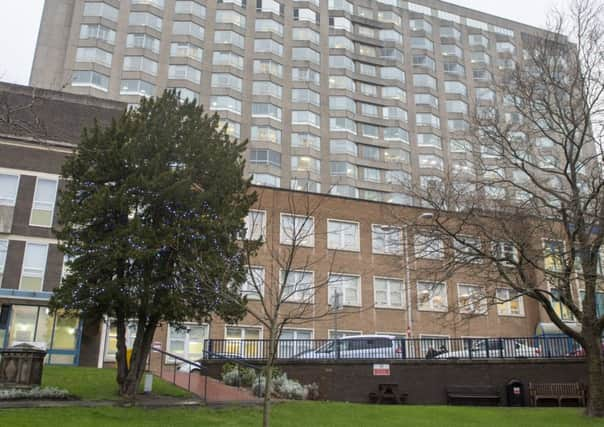Sheffield medics help paralysed patients walk again


A trial at the Royal Hallamshire Hospital has seen 20 patients receive bone marrow transplants using their own stem cells in a bid to ‘re-boot’ their immune systems, which has helped some people walk again.
The trial is also being run in the US, Sweden and Brazil.
Professor Basil Sharrack, from the Royal Hallamshire Hospital, said: “To have a treatment which can potentially reverse disability is really a major achievement.”
Advertisement
Hide AdAdvertisement
Hide AdThe treatment - known as an autologous haematopoietic stem cell transplant (HSCT) - aims to destroy the faulty immune system using chemotherapy.
It is then rebuilt with stem cells harvested from the patient’s own blood.
Professor John Snowden, a consultant haematologist at the Royal Hallamshire, said: “The immune system is being reset or re-booted back to a time point before it caused MS.
“It’s clear we have made a big impact on patients’ lives, which is gratifying.”
Advertisement
Hide AdAdvertisement
Hide AdMore than 100,000 people in the UK have MS, which is an incurable neurological condition.
One patient, Steven Storey, said: “I went from running marathons to needing 24-hour acute care. At one point I couldn’t even hold a spoon and feed myself.”
Within a few days of the transplant he was able to move his toes, and after four months he could stand unaided.
He still needs a wheelchair but is astounded at his progress: “It’s been incredible. I was in a dire place, but now I can swim and cycle and I am determined to walk.”
Advertisement
Hide AdAdvertisement
Hide AdHolly Drewry was 21 when she was diagnosed with MS and her condition deteriorated after she gave birth to her daughter Isla.
She said: “Within a couple of months I got worse and worse. I couldn’t dress or wash myself; I didn’t even have the strength to carry my daughter.”
Ms Drewry needed a wheelchair before her transplant, but after the treatment she walked out of hospital.
She said: “It’s been a miracle. I got my life and my independence back and the future is bright again in terms of being a mum and doing everything with Isla.”
Advertisement
Hide AdAdvertisement
Hide AdTwo years on she has suffered no relapses and there is no evidence of active disease on her scans.
Dr Emma Gray, head of clinical trials at the MS Society, said: “Ongoing research suggests stem cell treatments such as HSCT could offer hope, and it’s clear that, in the cases highlighted they’ve had a life-changing impact.
“However, trials have found that, while HSCT may be able to stabilise or improve disability in some people with MS, it may not be effective for all types of the condition.
“We want people to be aware that HSCT is an aggressive treatment that comes with significant risks. It needs to be carried out at an accredited centre or as part of a clinical trial.
Advertisement
Hide AdAdvertisement
Hide Ad“The MS Society has recently funded a study looking into the impact of HSCT on the immune system and we’d like to see larger trials in this area. They would help us learn more about the safety and long term effectiveness of the treatment and who could benefit from it.”